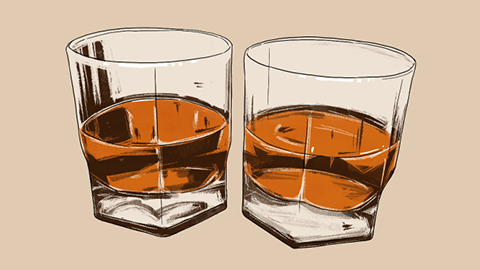Is losing control after drinking alcohol a mental illness?
Generally speaking, whether loss of control after drinking alcohol constitutes a mental illness depends on multiple factors, including the specific manifestations of the loss of control, duration, and the extent of impact on the individual's social functioning. If there are any concerns or worries, it is recommended to seek professional medical help promptly. The detailed analysis is as follows:

If the loss of control after drinking involves persistent hallucinations, delusions, or extreme behaviors such as aggression or self-harm, and symptoms continue even after alcohol has been metabolized, accompanied by severe impairment of social functioning and inability to carry out normal work or daily life, this may be related to alcohol-induced psychotic disorders or an underlying mental illness. In such cases, prompt professional medical evaluation is necessary.
If the loss of control after drinking is limited to brief emotional agitation or impulsive speech, without obvious hallucinations or delusions, and if cognitive and behavioral functions return to normal after alcohol metabolism without ongoing disruption to daily life, this is typically due to the temporary inhibitory effects of alcohol on the central nervous system. It represents a normal alcohol response and is not related to mental illness; therefore, excessive concern is unnecessary.
Family members should closely monitor emotional changes, avoid verbal provocation after drinking, and provide timely emotional support. Encourage the development of healthy hobbies to reduce reliance on alcohol. If increased frequency or worsening symptoms of post-drinking loss of control are observed, immediately accompany the individual to seek joint assessment from psychiatrists and internal medicine physicians.




